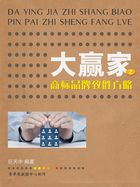On his return to Spain he found his old regiment about to march for Portugal to support Philip's claim to the crown, and utterly penniless now, had no choice but to rejoin it. He was in the expeditions to the Azores in 1582 and the following year, and on the conclusion of the war returned to Spain in the autumn of 1583, bringing with him the manuscript of his pastoral romance, the "Galatea," and probably also, to judge by internal evidence, that of the first portion of "Persiles and Sigismunda." He also brought back with him, his biographers assert, an infant daughter, the offspring of an amour, as some of them with great circumstantiality inform us, with a Lisbon lady of noble birth, whose name, however, as well as that of the street she lived in, they omit to mention. The sole foundation for all this is that in 1605 there certainly was living in the family of Cervantes a Dona Isabel de Saavedra, who is described in an official document as his natural daughter, and then twenty years of age.
With his crippled left hand promotion in the army was hopeless, now that Don John was dead and he had no one to press his claims and services, and for a man drawing on to forty life in the ranks was a dismal prospect; he had already a certain reputation as a poet; he made up his mind, therefore, to cast his lot with literature, and for a first venture committed his "Galatea" to the press. It was published, as Salva y Mallen shows conclusively, at Alcala, his own birth-place, in 1585 and no doubt helped to make his name more widely known, but certainly did not do him much good in any other way.
While it was going through the press, he married Dona Catalina de Palacios Salazar y Vozmediano, a lady of Esquivias near Madrid, and apparently a friend of the family, who brought him a fortune which may possibly have served to keep the wolf from the door, but if so, that was all. The drama had by this time outgrown market-place stages and strolling companies, and with his old love for it he naturally turned to it for a congenial employment. In about three years he wrote twenty or thirty plays, which he tells us were performed without any throwing of cucumbers or other missiles, and ran their course without any hisses, outcries, or disturbance. In other words, his plays were not bad enough to be hissed off the stage, but not good enough to hold their own upon it. Only two of them have been preserved, but as they happen to be two of the seven or eight he mentions with complacency, we may assume they are favourable specimens, and no one who reads the "Numancia" and the "Trato de Argel" will feel any surprise that they failed as acting dramas.
Whatever merits they may have, whatever occasional they may show, they are, as regards construction, incurably clumsy. How completely they failed is manifest from the fact that with all his sanguine temperament and indomitable perseverance he was unable to maintain the struggle to gain a livelihood as a dramatist for more than three years; nor was the rising popularity of Lope the cause, as is often said, notwithstanding his own words to the contrary. When Lope began to write for the stage is uncertain, but it was certainly after Cervantes went to Seville.
Among the "Nuevos Documentos" printed by Senor Asensio y Toledo is one dated 1592, and curiously characteristic of Cervantes. It is an agreement with one Rodrigo Osorio, a manager, who was to accept six comedies at fifty ducats (about 6l.) apiece, not to be paid in any case unless it appeared on representation that the said comedy was one of the best that had ever been represented in Spain. The test does not seem to have been ever applied; perhaps it was sufficiently apparent to Rodrigo Osorio that the comedies were not among the best that had ever been represented. Among the correspondence of Cervantes there might have been found, no doubt, more than one letter like that we see in the "Rake's Progress," "Sir, I have read your play, and it will not doo."
He was more successful in a literary contest at Saragossa in 1595 in honour of the canonisation of St. Jacinto, when his composition won the first prize, three silver spoons. The year before this he had been appointed a collector of revenues for the kingdom of Granada. In order to remit the money he had collected more conveniently to the treasury, he entrusted it to a merchant, who failed and absconded; and as the bankrupt's assets were insufficient to cover the whole, he was sent to prison at Seville in September 1597. The balance against him, however, was a small one, about 26l., and on giving security for it he was released at the end of the year.
It was as he journeyed from town to town collecting the king's taxes, that he noted down those bits of inn and wayside life and character that abound in the pages of "Don Quixote:" the Benedictine monks with spectacles and sunshades, mounted on their tall mules; the strollers in costume bound for the next village; the barber with his basin on his head, on his way to bleed a patient; the recruit with his breeches in his bundle, tramping along the road singing; the reapers gathered in the venta gateway listening to "Felixmarte of Hircania" read out to them; and those little Hogarthian touches that he so well knew how to bring in, the ox-tail hanging up with the landlord's comb stuck in it, the wine-skins at the bed-head, and those notable examples of hostelry art, Helen going off in high spirits on Paris's arm, and Dido on the tower dropping tears as big as walnuts.














